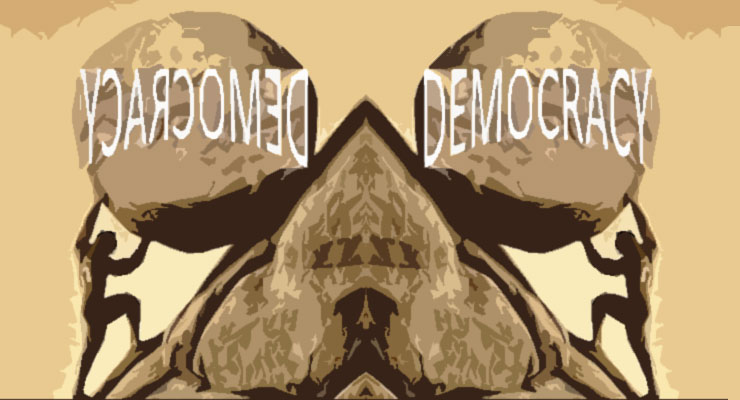
The International Observatory on Participatory Democracy is a worldwide network of local government and other interested researchers and practitioners interested in developing a more participatory form of local democracy. This year their conference was in Barcelona and we used the opportunity to run a workshop exploring people’s experiences of Participatory Budgeting, considering how this technique can best be used, and what its limitations are.
We started by trying to draw some lessons from the demise,and suspension, of PB in the city were it first started: Porto Alegre. From this we asked participants to reflect on the strengths and weaknesses of PB.
What key explanations have been given for the demise of PB in Porto Alegre?
- A lack of project implementation, with a backlog of uncompleted projects having built up. This was partly linked with a centralisation of funds away from the city.
- Capture of the process. Part of the process involved electing citizen representatives to set the rules for PB. Over time these representatives started to alter rules to suit their own position.
- A lack of transparency standards. Over time the budget information provided to participants became less thorough; there were no agreed standards to protect against this.
- A lack of political will. This was partly associated with a shift towards looking for delivery partners in communities, rather than involving communities in priority-setting.
- Difficulty including larger-scale projects. PB was mainly focussed on local infrastructure spending, and struggled to move into other issues.
After presenting this picture, we worked with participants to map out some of the strengths and weaknesses of PB. Below are some of the points discussed.
What are the strengths of PB?
- It can, with enough effort and resource, reach groups who are traditionally less likely to participate. Where based on deliberation, it can help people step in each other’s shoes and realise the diversity of outlooks and needs in their community. These interactions can strengthen communities.
- It can make room for deliberation and the reaching of compromises, as in the Antwerp process. (There is a description of this process in Flemish here, we hope to share a case study about this in the near future).
- As a regular annual process PB gives an opportunity to learn about what approaches work more or less well and make improvements in an iterative way.
- It gives participants real decision-making power.
- Participants can see really tangible outcomes of their involvement, within a much shorter timeframe than many other political processes.
What are the limitations of PB?
- The cost of doing PB well is high, once you factor in things like the cost of facilitators.
- Being set up to implement whichever projects are chosen also places considerable demands on organisations, who must be able to adapt.
- People often come with their own pet projects,and aren’t keen to engage with other ideas. A more deliberative approach can help tackle this, though doesn’t remove it completely.
- There are risks of just reaching the ‘usual suspects’, who are already good at raising their voice. However, there are ways of tackling this, and PB can be a way or reaching beyond these groups. For instance, Antwerp asked unrepresented groups what the barriers were and after discovering that uncertainty was a major deterrent went to great lengths to explain how events would work and even put on dry-run rehearsals so that people were more confidant taking part in the real decision-making sessions.
- The preference of the majority can, nonetheless, be very negative for those in the minority. A new sports facility might be great for most people, but could have really negative impacts like noise and light pollution for its immediate neighbours. Giving people negative, as well as positive, votes is one way of trying to mitigate against this. One case was mentioned where adding negative votes took a proposal from being the third most popular right down to the mid-50s.
Hopefully these comments will have spurred some reflections of your own. Feel free to add your own reflections in the comments. If you’d like to speak to us further about PB please contact hanne@demsoc.org or mat@demsoc.org
Key sources:
- ‘Porto Alegre, From Role Model to Crisis’. In: Hope for Democracy, 30 years of PB worldwide
- Porto Alegre: PB and the Challenge of Sustaining Transformative Change (World Resources Report)
Leave a Reply